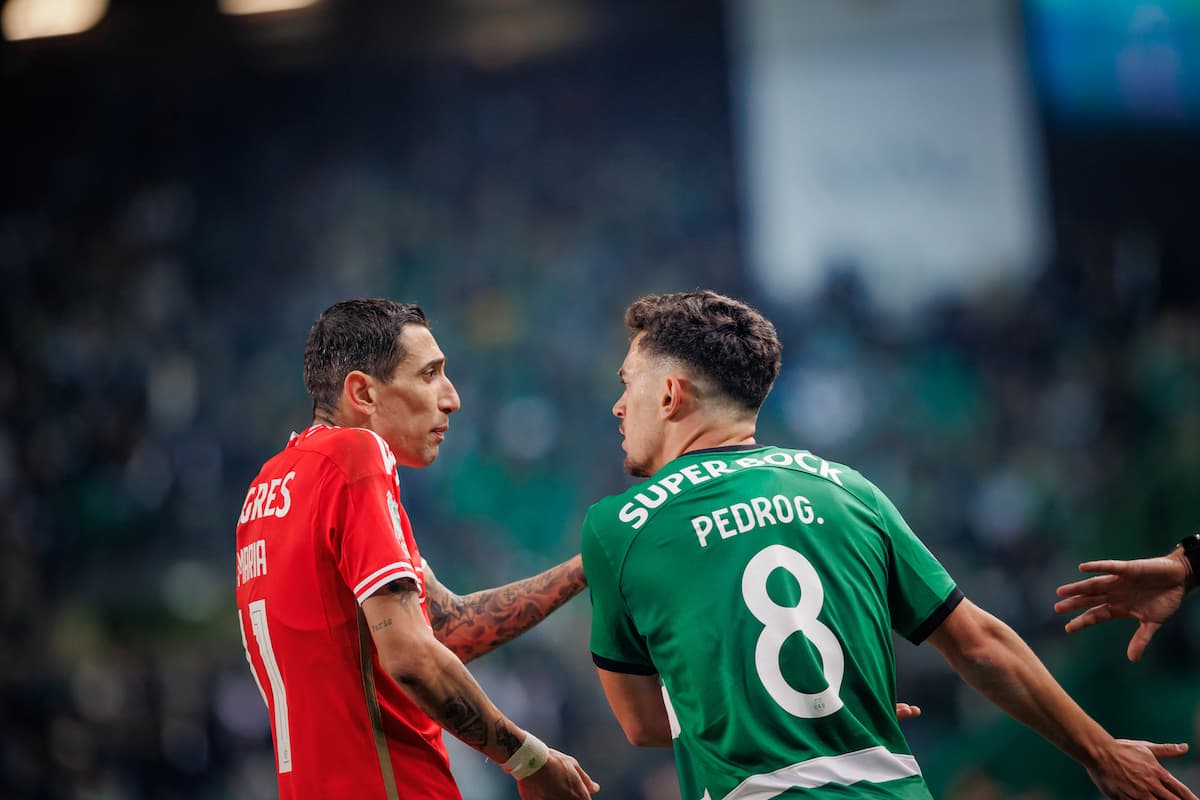The Derby de Lisboa, played between Sporting CP and S.L. Benfica, is one of the oldest and most passionate rivalries in Europe. But did you know that this fiercely contested derby has also been played across the globe for decades in countries like Cape Verde, India, Angola, and many more?
Portuguese colonisers in the 20th century set up hundreds of affiliate clubs and branches, many of which still operate today and compete against one another in their country’s top divisions.
Mozambique
An example of this can be found in Mozambique, where Sporting Clube de Lourenço Marques, now known as CD Maxaquence, was founded as the 6th branch of Sporting CP.
The club was established by a group of students in the city of Lourenço Marques, now known as Maputo, which was then part of Portuguese Mozambique, and named it Sporting after the club they all supported. This club would become the future home of Benfica and Portugal legend Eusébio, who played for the club from the age of 12 until his move to Portugal at 18. Despite being one of Benfica’s greatest players, Eusébio’s roots lie with Sporting.
A player who played alongside Eusébio and is known by many as somewhat of a mentor to him, Mário Coluna, was part of the Benfica team that won the European Championship in 1961 and 1962 and came from another affiliate team in Mozambique. Grupo Desportivo de Maputo was founded in 1921 as an affiliate team of S.L. Benfica. Although its name changed in 1976 after Mozambique’s independence, the logo still shares a striking resemblance to Benfica.
Both have experienced great success in the Mozambique top division, with Maxaquence having won the league title seven times and Desportivo de Maputo lifting the trophy eight times.
Angola
Angola is an interesting case where not only have offshoots of these two sides competed against each other, but also against themselves. Three notable Sporting CP branches have historically competed in the Angolan football league: Sporting Clube de Luanda, Sporting Clube de Cabinda, and Sporting Clube de Benguela. As recently as the 2022/23 season, both Sporting Clube de Cabinda and Sporting Clube de Benguela competed in Girabola, the top division of Angola. Cabinda came out on top both times, winning 1-0 in both fixtures.
Sporting Clube de Luanda is the most historic of these sides, having been formed as the third branch of Sporting CP in 1920. The side has won the Angolan Provisional Championship eight times (1941, 1942, 1944, 1946, 1947, 1955, 1956, 1963) but is currently out of major competition due to financial reasons.
Interestingly, like in Mozambique, following the country’s independence in 1975, the club changed its name as part of the communist regime’s attempt to erase all traces of colonial rule. However, in 1989, with the establishment of democracy, the club was able to reclaim its original name.
The Benfica counterpart in Angola is much less successful. Sport Luanda e Benfica has never won the Girabola. Unfortunately, like most historic Sporting branches, they are also not participating in major competitions due to financial reasons. The most recent Benfica Sporting derby in the top division of Angola took place on August 7, 2015, where Zeca Amaral’s Luanda e Benfica beat Sporting Cabinda 3-2.
Macau
Unlike in the previous two cases, in Macau, a Macanese version of the Derby de Lisboa is being played this season. Sporting Clube de Macau was founded in 1926 as the 25th branch of Sporting CP, and Benfica de Macau was founded on the 17th October 1951, as House No. 232 of Benfica.
In the style of the Derby della Madonnina in Milan, these two clubs even share a stadium. In the last four league matches played at the Centro Desportivo Olímpico, Benfica Macau were the winners.
The contests were not very competitive, with Sporting Macau failing to score a single goal, resulting in an aggregate scoreline of 19-0. This is not surprising, as Benfica de Macau have won six league titles and three Taça de Macau cups, whereas Sporting has yet to claim any silverware.
The Derby de Lisboa may be rooted in the capital of Portugal, but its legacy stretches far beyond. Through decades of colonial history and cultural exchanges, the rivalry between Sporting CP and S.L.
Benfica has taken on a life of its own across continents. Whether it’s the early development of footballing royalty like Eusébio and Mário Coluna in Mozambique, or the fierce but financially challenged battles in Angola, or even the one-sided clashes in Macau’s shared stadium, these international echoes of the Lisbon Derby tell a story.
If you ever fancy seeing the famous derby in person, it isn’t necessary to travel to Portugal. Consider a slightly different format in a lesser-known football league.









